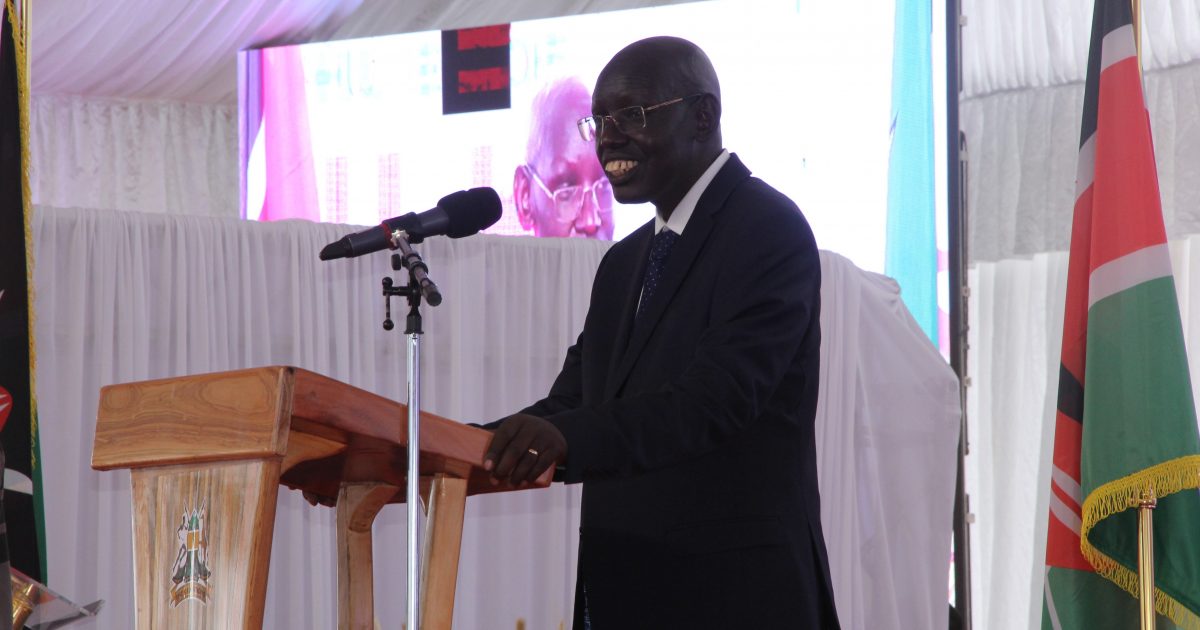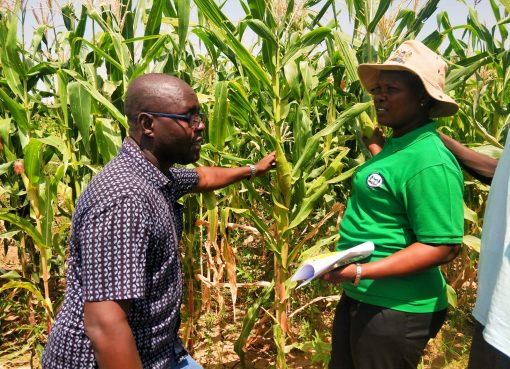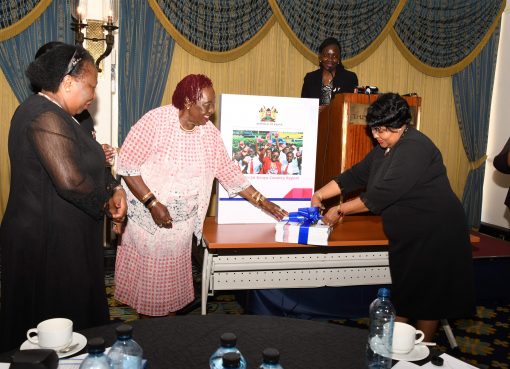The Principal Secretary (PS) State Department for Basic Education, Dr. Belio Kipsang, has announced that the National Government, will in the next Financial Year 2023/2024, double funding for schools’ meals programme, from Sh 2 billion to 4 billion shillings and work closely with County Governments, in order to increase the feeding and retention of children in schools.
He indicated that food and nutrition play a very critical role in the wellbeing of the learners in terms of the development of their cognitive abilities.
The PS was speaking when he presided over the launch of the School Milk Programme in Uasin Gishu County.
He alluded that the overall call for the school feeding programme, is to support the government towards attaining universal primary education and achieving the Sustainable Development Goals, which is in line with the Kenya Kwanza Education Charter.
“The school meals programme is a powerful way of incentivising our young ones into enrolling in our schools and increasing the numbers of those who are in school and reducing those who are out of school,” he said.
He noted that the school meals programme, had become an important strategy for reaching to the marginalized and the vulnerable communities and those who are in the buffets of poverty and the urban poor.
PS confirmed that the National Government provides porridge in the early learning institutions in the informal urban settlement, to support learners.
Dr. Kipsang said that it is a collective responsibility to partner at all levels of government, to make sure that the children are able to be in school as he reaffirmed the government’s commitment and determination, to provide school milk in all the ASAL areas, informal settlement areas, special needs children and sub urban areas.
The Education PS noted that, to ensure sustainability of the feeding programme, the government, through the Ministry of Education, will work together with the governors on what is called the Home-Grown School Meals Programme, where the local communities will provide the necessary ingredients such as milk and grains, to facilitate the programme.
The Home-Grown Programme will benefit both the education and the agricultural sectors.
“For instance, our local farmers in Uasin Gishu are dairy farmers, so we are buying milk from our farmers and therefore giving them an income. The household is benefiting twice by getting an income from milk and also benefiting by their children getting a meal in school,” explained the PS.
He called on governors across all the 47 counties to support the initiative, which is a win-win for the agricultural and the education sectors, noting that it is key for it will increase enrolment, stabilize the learner’s attendance to school, increase gender parity because children of both genders will be in school and improve transition and at the same time contribute to improve the health and nutrition sector for the children.
On the agriculture side, it will link the school meals to the local agricultural production, it will also increase the smallholder farmers’ access to the school feeding market that is there.
PS noted that the programme will encourage and improve production practices among the small-scale farmers and increase direct purchase for the smallholder farmers.
“I would also want to encourage our other governors, that let’s work together, in area where you can provide fortified porridge, let’s do it, if you are in area where you can provide milk let’s do it so that at the end of the day, we are supporting our local communities, to be able to move on,” he said.
He commended the step the County Administration has made to provide school milk for the ECDE schools in the County, which he said, will increase retention, transition and ensure there is success in access to quality education.
“Children at this particular age are at the stage of fastest growth and development of their brain and for the brain to develop, we need proper nutrition and what they would get from this milk, will be able to assist them to be the future that they would be,” said. Dr. Kipsang.
Calling on the other governors to emulate the step governor Chelilim had made in introducing school milk, the PS reiterated the importance of investing in foundational learning, which is the ECDE, noting that it serves to reduce in future the investment government will put in higher levels of learning.
“Research has confirmed that when we give a proper foundation, when we invest well in ECDE and foundational learning, the cost of education in the future, will go down by up to 15 percent,” he noted.
“By doing so, you are investing and making it easy for the rest of us who manage education at higher level from primary, secondary and into the university to a very substantial extent to reduce the investment that we shall put in the next level of learning, because you would have facilitated that particular aspect,” he added.
By Ekuwam Sylvester





